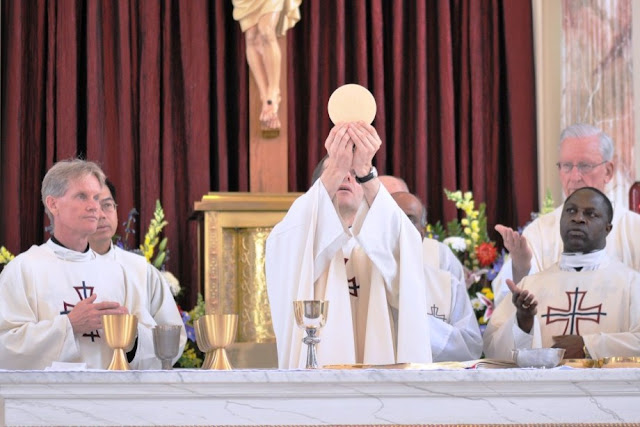Geoffrey R. Kirkland
Christ Fellowship Bible Church
Of course, Mary was baptized as an infant! She was confirmed. She has served in many various roles in her local parish. In fact, she attends mass daily. She even goes to the local pro-life events and devotes time, resources, and energy to biblical principles. The neighborhood knows her as the churchgoer and as the one who would bend over backwards to serve those in need and help in any way she’s able. She’s always gone to church. Never does she miss a Sunday.
In fact, she believes in Jesus. She believes she’s a Christian because she has faith. She listens to Christian radio. She goes to the Christian bookstore. She goes to the national day of prayer and serves the community well. She affirms the Trinity and the virgin birth. She believes Jesus died on the cross and rose from the dead. She has a Bible and even reads it periodically. She affirms with the Catechism of the Catholic Church (CCC #452) that the child born of the Virgin Mary is called Jesus, ‘for he will save his people from their sins’ (Matt 1.21: ‘and there is no other name under heaven given among men by which we must be saved’ (Acts 4:12). But do they believe in the biblical Jesus and in the sufficient and saving crosswork of Jesus Christ alone for salvation?
- According to Catholicism, Christ instituted the Mass when he said “This is my body” (Matt 26:26) and Romanism teaches that Jesus gave the apostles and hence his future priests the power to change bread and wine into his real body and blood. Thus, during the Mass, it’s a holy sacrifice (CCC #1055, 1365).
- Catholicism teaches that in the sacrifice of the Eucharist (=Mass), the work of our redemption is accomplished (CCC #1068). In fact, it re-presents the sacrifice of the cross (CCC #1366).
- Tragically, the Roman Church teaches that the sacrifice of the Mass is truly propitiatory -- that means that it removes the wrath of God (CCC #1367). To deny this is to be placed under a curse, what is called “anathema” (Council of Trent: Sacrifice of Mass: Canon 3).
- The Bible, however, presents a completely different way of salvation than what the Roman Catholic Church teaches -- salvation not through works, the Mass, the Church, or baptism.
- The Bible teaches that Jesus offered Himself for the sins of His people once for all (Heb 7:26-27) and he was offered once to bear the sins of many (Heb 9:28). He offered one sacrifice for sins for all time (Heb 10:10-12). Every Mass is an abomination as it is a re-sacrificing of Jesus Christ when, in fact, He really, fully, gloriously accomplished salvation once for all.
- Every repetition of sacrifice that an alleged priest performs during the Eucharist ceremony is completely meaningless and of no value whatsoever. Every priest stands daily ministering and offering time after time the same sacrifices which can never take away sins (Heb 10:11).
- Our glorious Savior bore the full wrath of God on the cross (Rom 3:25) and was crushed under the Father’s just judgment (Isa 53:10) and became the Curse for sinners (Gal 3:10-13). When He drank the cup of divine wrath and completed the work of redemption, he victoriously chanted: “It is finished!” (John 19:30). Roman Catholic theology does not allow for the work of salvation to be accomplished since purgatory exists to purge away sins (CCC #1030).
- Catholicism teaches baptism is necessary for salvation (CCC #1257) & that baptism erases original sin (CCC #405). Christ says: believe & have life (John 3:15-16, 36). Salvation is a free gift (Eph 2:8-9) and cannot be complemented with works (Gal 2:21). Trust Christ alone!


